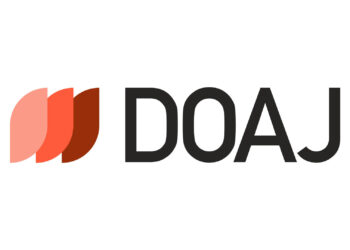
- Williams Attic by tantrum_dan via Flickr
Open access repositories should become more selective about what they host if they wish to gain the trust and participation of researchers, a new study suggests.
The article, “OA Repositories: the Researchers’ Point of View,” by Roxana Theodorou, appears in the December issue of the Journal of Electronic Publishing. Her study reports the results of a six-question survey of 192 researchers at 20 European institutions.
The vast majority of respondents, Theodorou reports, would consider submitting their work to an open access repository if the repositories “underwent the same procedures as in any given high reputation journal.” In other words, researchers would consider repositories as respectable journals if they operated . . . well . . . just like respectable journals.
The majority states the belief that a repository running under stern reviewing terms can be considered an equally important means of publication as any other scientific journal. Of course, this question is highly theoretical, as such repositories do not currently exist.
Theodorou also points out the well-documented asymmetric behavior of researchers acting as authors or as readers, and her respondents clearly see more benefit from being the latter:
While trust is necessary for publication, more than half of those who say they trust it still do not use it to publish their works, but only to gain access to other people’s work.
I want to focus on the notion of repositories-as-journals, but I need to first point out that her study may be susceptible to several forms of bias including: sampling bias, non-response bias, response bias, acquiescence bias, and social desirability bias; and finally, that hypothetical behavior may not be representative of actual behavior. The existence of any of these biases may not necessarily invalidate her study, but their possibility should have been addressed as limitations in in her paper.
In his 2002 ARL/SPARC position paper, “The Case for Institutional Repositories,” Ryam Crow, makes a clear case for the institutional repository (IR) fulfilling the role of the journal. Crow argues that the fundamental functions of publishing (registration, certification, dissemination, and archiving) can be decoupled in the online environment, allowing repositories to assume these roles — working independently, or in tandem with private services — to create a “global system of distributed, interoperable repositories, that provides the foundation for a new disaggregated model of scholarly publishing.”
Not only could institutional repositories provide equivalent services as journals, Crow argues, but IRs could do them better, as a smaller number of them would function more effectively at concentrating the “collective intellectual capital” than having this capital spread thinly across thousands of journals.
Not all scholarly communication strategists feel this way.
In his 2003 ARL report, “Institutional Repositories: Essential Infrastructure for Scholarship in the Digital Age,” Cliff Lynch believes just the opposite. He argues that repositories would fail if we view their purpose as instruments for changing the economics of scholarly publishing. Repositories, Lynch maintains, should not attempt to emulate scholarly journals and therefore should not be managed like one.
The institutional repository is a complement and a supplement, rather than a substitute, for traditional scholarly publication venues.
Rather than adopting the highly-selective, vetted and edited nature of the journal literature, Lynch argues that IRs should be as open as possible and collect those things that journals fail at preserving, like datasets, conference abstracts, and presentations — the so-called “gray literature.”
Being a curator of gray literature may not come with the prestige and branding that comes from selectivity, but it is an important role and a role that the commercial market may not be willing to support.
The trust in institutional repositories is not the same kind of trust that Theodorou writes about in her article. It is the belief that libraries will continue to collect the intellectual output of an institution, to preserve it for posterity, whether or not there is a commercial market for it, in the hopes that one day, someone, somewhere will find something useful.
Discussion
4 Thoughts on "Open Access Repositories Lack Trust — But Is Trust Really Necessary?"
I completely agree with Cliff Lynch. These repositories are a new phenomenon, and they should be optimized to fill the space they fill, not forced into a mold that already exists thousands of times over but also that doesn’t provide the kind of differentiation and outlet repositories could.
We are seeing changes in how scholarship is done. Forcing everything into existing definitions doesn’t allow for progress.
Crow’s vision for institutional repositories relies on traditional journals for at least some peer review. Under “Registration”, he says “Published peer reviewed research included in an institutional repository will have already cleared the original publisher’s registration and certification processes.” If repositories are to be more selective and seek to replace traditional journals, who is going to assume the work and costs of peer review? Although most reviewers are not paid, the peer review process is far from free or even low cost. Crow and many others usually ignore this fact.
The right answer to questions like this, of the form “Is it A or is it B,” is rarely A or B. The right answer is typically “it depends on…” and the critical part is on what it depends.
The use of the word ‘trust’ in your title is instructive, since I can’t think of another word that is more dependent on the object or context to prove its point.
The role of open repositories will emerge over time through excellent discussions like this one. It will end up being like the Shires case I had in business school–sort of like shirts, and sort of like tires, but not really the same as either one.
The key, I think, is the differentiation of roles. What we’re seeing is the separation of where information lives and how we are pointed to it. The primary value of the IR is inclusiveness: accommodating as much as possible (and it can, and should, change over time). The primary value of the journal is curation: pointing readers to what is most important, most valuable, most relevant; validating it; commenting on it from an authoritative perspective. Not everything in an IR has to be of equal value; a journal doesn’t have to contain everything it comments on. I think we’re undergoing a transition characterized by multiple “locations” for content (even content we associate with a single “article,” e.g. the text one place, the data in another) and multiple pointers to it (journals, societies, social networks, etc.). This is a very different but ultimately a much richer ecosystem.



